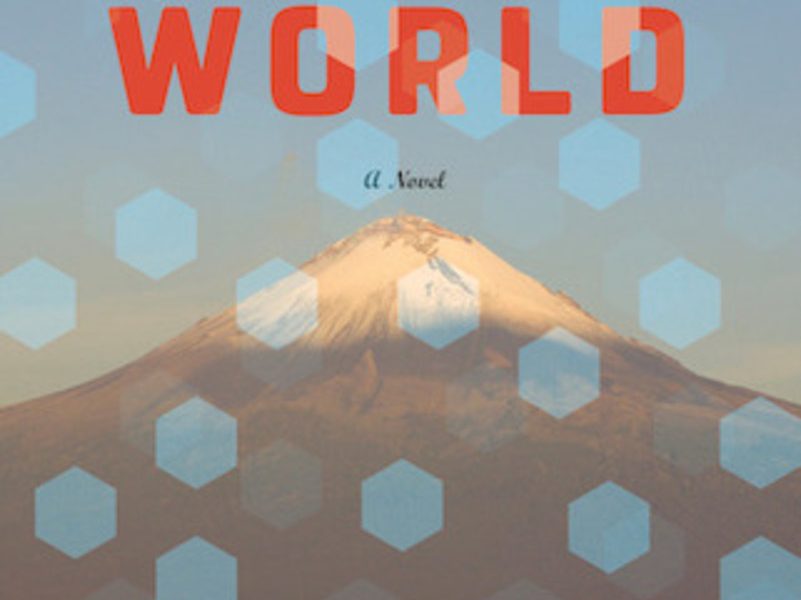The Story of a Heel: Notes on Memoir and Fiction
When I was in high school in East Germany, a substitute teacherтАФnot our usual boring drone, who had fallen illтАФgave us an unusual homework assignment: тАЬWrite a story from your life. Let your reader know what happened and how you felt about it. Work on it over the weekend and bring it in on Monday.тАЭ
(Joel Agee: On Recreating Lost Time)
The class erupted into a cacophony of protest: тАЬItтАЩs too hard! WeтАЩre not prepared! Does it have to be true?тАЭ
тАЬIt neednтАЩt be true,тАЭ the teacher said, тАЬbut it should be believable, and it should be a story. I think you all know what a story is.тАЭ
тАЬHow long should it be?тАЭ
тАЬLong enough to have a beginning, a middle, and an end.тАЭ
тАЬI can do that in three sentences!тАЭ
тАЬThatтАЩs very clever. IтАЩll make it more complicated. As you know, we have five senses. Try to bring them in: what you heard, what you felt, what you saw, what you smelled, what you tasted. And also, what you thought.тАЭ
тАЬI canтАЩt remember all that!тАЭ
тАЬOh, but you can imagine it.тАЭ
During recess, a classmate said to me: тАЬThis is easy for you. YouтАЩve had an interesting life. You lived in Mexico; you came over here on a ship. My life is boring. I have no interesting stories to tell.тАЭ
I was astonished to hear that. тАЬWhat about the Russian soldier who sliced off your heel?тАЭ
тАЬPart of my heel. ThatтАЩs true, but it was long ago, and I hardly remember it.тАЭ
тАЬWas he trying to kill you?тАЭ
тАЬIтАЩm sure he was, but I got away. I was running into my house, and he was on horseback. He swung his sword at me in passing.тАЭ
тАЬWell, thereтАЩs your story.тАЭ
тАЬYes, but thatтАЩs all there is to it.тАЭ
I thought of the five senses. тАЬWhat did you see?тАЭ
тАЬNothing. I was just running.тАЭ
тАЬWhat did you hear?тАЭ
тАЬI donтАЩt remember.тАЭ
IndieBound | Bookshop | Amazon
[WD uses affiliate links.]
My friend took my advice and wrote the story of how he lost part of his heel. He neither added nor subtracted anything. Conscientiously, he fulfilled the assignment of bringing in sense impressions by saying that he had no memory of anything visual beyond the sight of a man on a black horse galloping toward him and leaning sideways out of his saddle with a saber raised over his head; no memory of sounds, though there must have been gunfire and screams and the clatter of horsesтАЩ hooves; no memory of fire or the smell of smoke, though he knew several straw-thatched houses in the village burned down. Later, after the crisis had passed, there was pain. A doctor treated him with an antiseptic and bandaged the wound, and for a while he felt like a hero.
The teacher gave him a OneтАФthe east German equivalent of an A.
My friendтАЩs approach represents one honorable way of telling a true story: as a factual, unembroidered report. But memory is notoriously unreliable. A great deal of psychological research has established that the simplest acts of remembering in daily life are in large part performed by the imagination. To put it more bluntly, what we think we remember is largely made up.
Did my friend, who was so intent on not imagining anything, really see a black horse? The image works a little too neatly as an archetypal representation of terror. Moreover, his assumptions about what he probably saw, heard, smelled, and sensed at the time are themselves proof that memory alone provides an insufficient record of a past event at best.
Instead of trying to screen out unconscious distortions as if for a juridical inquest, I think a more fruitful approach when writing from memory is to engage the imagination as an ally in search of a larger truth. My friend might have wondered at what he couldnтАЩt remember, as he actually started to do with his list of forgotten sensory impressions. He might have included aspects of reality that were left unillumined by his rigorously objective approach. He might have described a typical day in his villageтАФthe games he played with other children, the air raid alarms, the radio propaganda, the atmosphere of impending catastrophe that was surely felt by everyone around himтАФand situated the terrible event in that context, complete with an evocation of sounds, sights, and smells he no longer remembered.
Unexpected questions might have arisen: Where did the man on the horse come from? What was his experience before he came to that German village? Was someone being avenged by the cut of that sword? And what about the boyтАЩs father? I know nothing about him, but of course my friend did. Most likely the man had been drafted into the Wehrmacht. Had he fought on the Eastern front? Had he been captured? Was he in a prison camp? Or had he died in battle?
Here I am, imagining a young novelist, 15 or 16 years old, part of whose heel was sliced off by a marauding Soviet cavallerist when he was a child, and who now wants to imagine everything there is to imagine and know about that incident. Everything? Sure, why not? The image of a hungry animal suggests itself, foraging for food after nightfall and finding that severed piece of flesh. A cat? ItтАЩs an unappealing thought, but not lacking in truth.
Let us liberate the word тАЬtruthтАЭ from the confines of verifiable fact. Let тАЬtrueтАЭ mean тАЬin accord with reality.тАЭ To writers of imaginative prose, the question presents itself again and again: Does this image, this scene, this character, ring true? That question pertains no matter whether we are writing fiction or memoir.
I call this approach the way of imaginative re-creation. I have written in this mode most of my life, culling from memory and daily experience hundreds of readymade stories, seemingly plotted by life as if by a great novelist, needing only a little pruning and some artful elaboration to make them complete.
My most recent book, The Stone World, was a new departure. As usual, I began with a memory, or rather with a photograph that substituted for a memory. The picture showed me at the age of six, lying on a stone terrace rolling a marble from one hand to the other. The knowledge that this child had once been myself fascinated me. What was it like to be him?
An idea proposed itself with an appeal I found irresistible: to project myself back into that little body and view his world, his parents, his friends, the inner and outer events of his life, not from memoryтАФas I had almost no memories of that timeтАФbut through his eyes, from moment to moment, in the absolute present of his experience. A fiction, in other words, drawn from the depths of my own bodyтАЩs knowledge of what it is to be in the world without prejudice and without fear.
Whether your medium is memoir or fiction, let your aim be to get at the truth. More often than not, the bare facts donтАЩt suffice. You cannot do without imagination. Use it judiciously and with courage. Just donтАЩt lie.

When you take this online course, youтАЩll explore creative writing topics and learn how descriptive writing can breathe life into your characters, setting, and plot with Rebecca McClanahanтАЩs Word Painting. Stretch your imagination, develop your creative writing skills, and express your creativity with this writing course.



